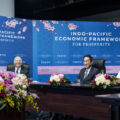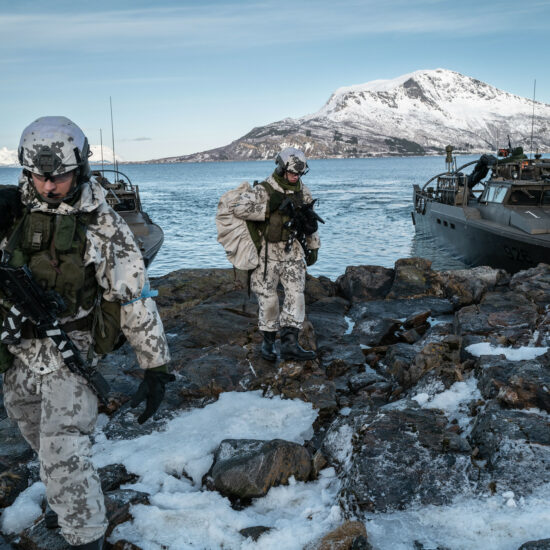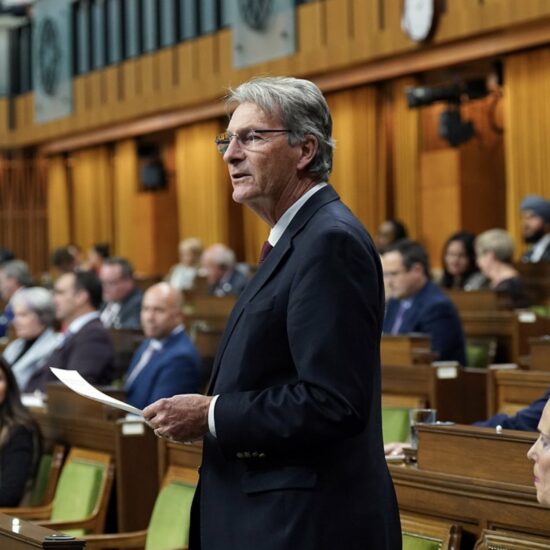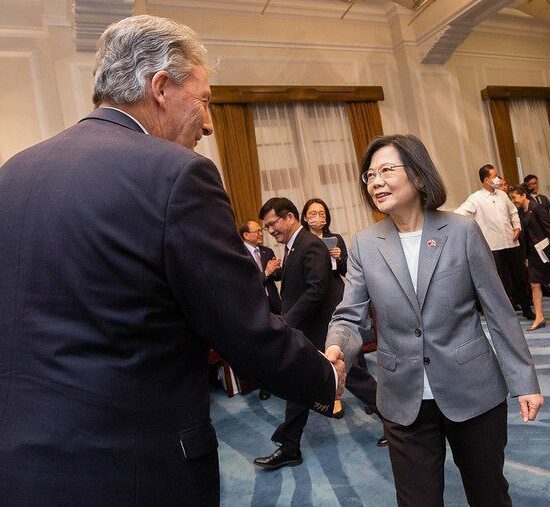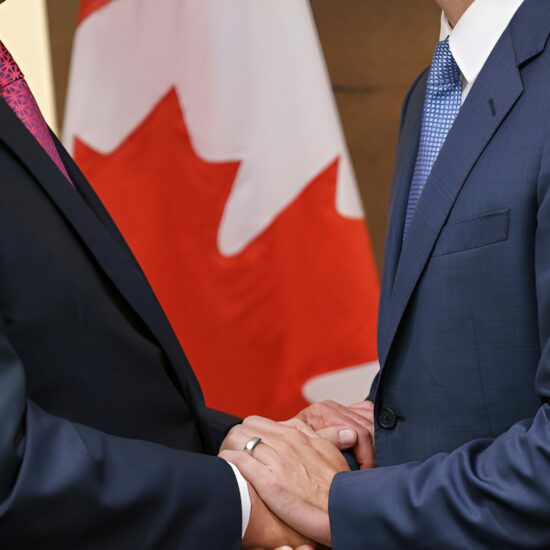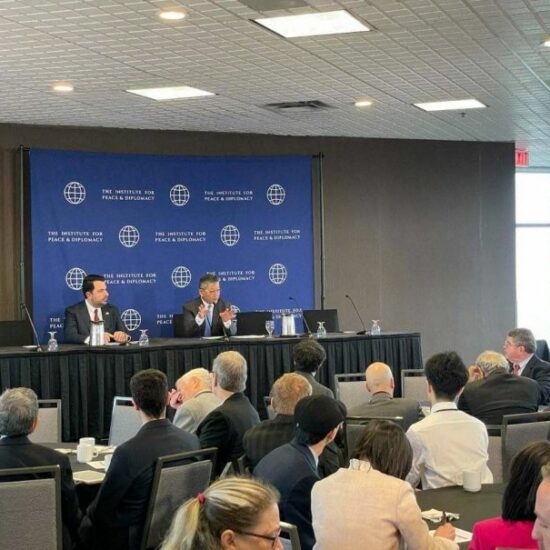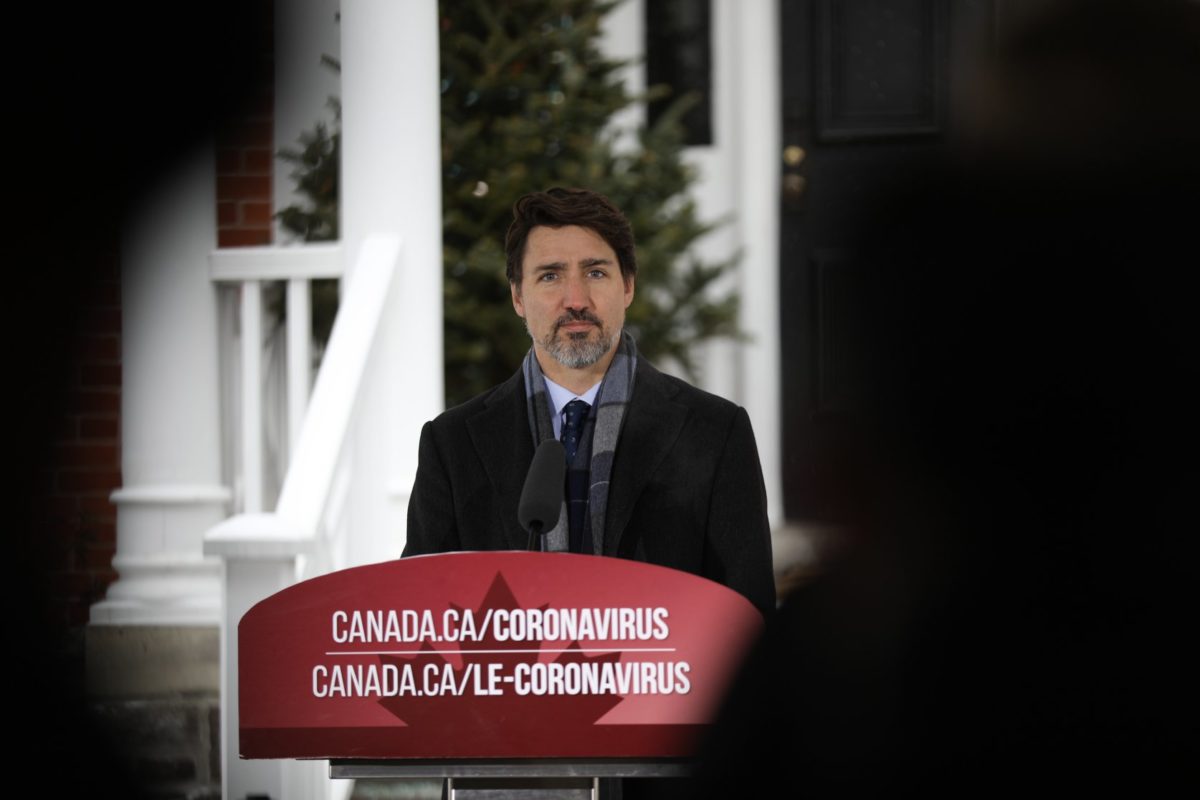
Photo from PM Trudeau’s Facebook page.
This global crisis demands more cooperation among world powers. The U.S. has failed to lead, hence making it a strategic imperative for Canada to help fill the leadership vacuum and strengthen its health diplomacy.
This article was originally published on The Hill Times.
By Pouyan Kimiayjan
COVID-19 has triggered an unprecedented humanitarian crisis. With thousands killed and millions inflected, the pandemic has also crippled the global economy. Governments around the world are scrambling to import desperately-needed medical equipment while struggling to keep their economies afloat amid widespread lockdowns. Instead of increasing international cooperation, the pandemic has sparked ruthless competition among states to gather humanitarian aid. One disappointing example was the Trump administration’s decision to not only halt the export of N95 respirators to Canada but also putting the World Health Organization (WHO) funding on hold due to its political disagreements with China.
Global stability is at risk, and responsible powers are acting to preserve it. Canada and its allies, particularly the European Union, have stepped up their foreign aid initiatives to manage the pandemic in other hard-hit countries. On February 11th, Canada provided $2 million to the World Health Organization to help vulnerable countries prepare and respond to COVID-19 events. In March, the Trudeau government rolled out foreign aid to combat COVID-19 in developing countries. International Development Minister Karina Gould announced that Canada has earmarked $50 million amid the launch of the United Nations COVID-19 humanitarian response plan. This announcement included $8 million, which was allocated to the World Health Organization, the Pan American Health Organization, the United Nations High Commissioner for Refugees and the International Federation of Red Cross and Red Crescent Societies.
The EU has also been working on a joint European approach in helping the most vulnerable states, particularly in Africa and across the world. The union has reoriented funds from its total budget, allocating an astounding €20 billion foreign aid package to distribute among its global partners to better handle the pandemic. To accommodate the costs, the package will consist of European Investment Bank (EIB) and European Bank for Reconstruction and Development (EBRD) loans and member-state contributions. While Canada has limited resources compared to the EU, it can engage in multilateral discussions to get involved in collaborative aid programs.
Canada has so far been successful in managing the virus’ spread, effectively flattening its curve. The federal government is well-positioned to put more focus on Canada’s health diplomacy and fight the pandemic on a global scale to prevent its resurgence within our own borders. Similar to the EU’s foreign aid strategy, Canada must provide funds and assist the most hard-impacted countries. One example was the union’s particular response to Iran’s struggle with the pandemic, the most affected country in Western Asia. Last month, EU foreign policy chief Josep Borrell announced that it will send €20 million in humanitarian aid to the sanctions-hit country.
In addition, Canada must increase its funding of the WHO following the US’ decision to halt its contributions. Member-state donations make up 51% of the WHO’s funding. US contributions accounted for about 20% of the organization’s budget, having pledged more than $57 million for January 2021. Canada has only pledged more than 6.5 million for next January, along with its recent emergency contributions to the organization.
Meanwhile, the US withdrawal has created a budget vacuum. More funding will translate to more political influence, and as expected, China is taking advantage. While China’s funding already accounted for %12 of WHO’s total budget, Beijing has pledged to increase its financial support for the global health body. The country has also become a global leader in providing humanitarian aid, supplying Canada and other US allies with humanitarian aid.
If Canada intends to re-establish itself as a prudent middle-power, the Trudeau government must consolidate its international reputation as a leading global power in confronting COVID-19. Further investment in COVID-19 related foreign aid will also supplement Canada’s campaign to successfully secure a bid for the United Nations Security Council. Canada faces serious competition from Ireland and Norway. The two countries spend far more on international development to poor countries and have contributed a higher number of military personnel to UN peacekeeping efforts. In addition to increasing its financial assistance to humanitarian organizations and states suffering the most from the pandemic, Canada can compensate for its low troop contribution to UN-led missions and pledge military assistance to countries struggling from COVID-19. Canadian troops are already engaged on the domestic front, assembling to help contain the pandemic in multiple provinces. They can utilize their experience at home to help Canada’s global pandemic efforts.
This global crisis demands more cooperation among world powers. The US has failed to lead, hence making it a strategic imperative for Canada to help fill the leadership vacuum and strengthen its health diplomacy. Fortunately, we have the global legitimacy and the necessary financial and medical resources to do just that.

